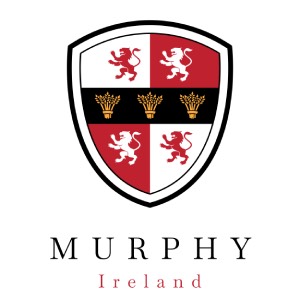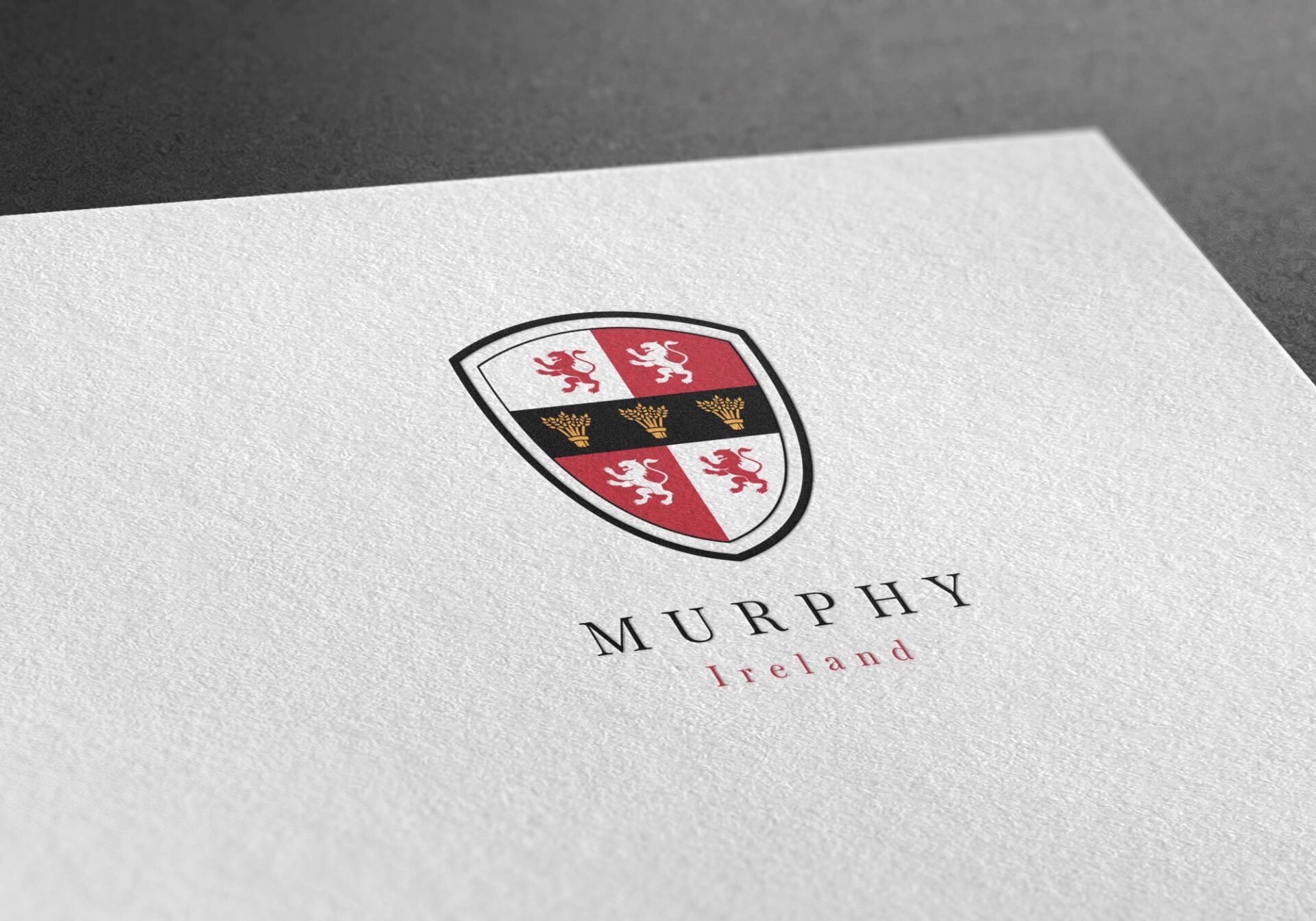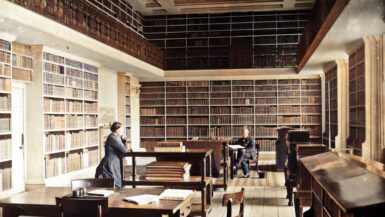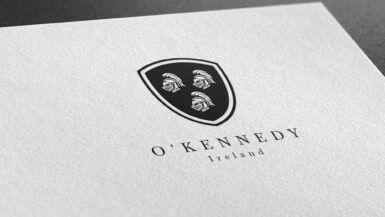The surname Murphy is a patronymic name, which means it was formed from the given name of an ancestor. It is of Gaelic origin, derived from the Old Irish personal name “Murchadh,” which is composed of two elements: “muir,” meaning “sea,” and “cadh,” meaning “warrior.” Therefore, the name can be interpreted as “Sea Warrior.”
Etymology and Meaning
As mentioned earlier, the Murphy surname is derived from the Old Irish name “Murchadh,” meaning “Sea Warrior.” This is reflective of the maritime traditions and warrior ethos of the early Irish people. The word “Murchadh” itself has its roots in the ancient Celtic language, which predates the Gaelic language.
Earliest Known Usage
The earliest known usage of the Murphy surname dates back to the 10th century in Ireland. The Murphy surname is first found in County Wexford, where they held a family seat from very ancient times.
Geographic Distribution
The Murphy surname is commonly found in Ireland, where it is the most common surname. It is particularly associated with the province of Munster and the counties of Cork and Kerry. However, due to emigration, the Murphy name is also prevalent in many English-speaking countries, including the United States, Canada, Australia, and the United Kingdom.
Original Geographic Location
The original geographic location of the Murphy surname is Ireland, specifically in the southern region of the country, predominantly in County Wexford and the Munster province.
Migration Patterns
Significant migration of individuals bearing the Murphy surname occurred during the 19th century, particularly during the Great Famine (1845-1852). Many Murphys left Ireland for North America, Australia, and other parts of the British Empire. This migration significantly spread the Murphy surname worldwide.
Historical Context
The history of the Murphy surname is intertwined with the history of Ireland itself. The Murphys, like many Irish families, were greatly affected by the English conquest of Ireland, the Penal Laws, the Great Famine, and the struggle for Irish independence.
Notable Historical Events
One notable event involving the Murphy surname is the Battle of Arklow in 1798, where Father Michael Murphy, a leader of the United Irishmen, played a pivotal role. The United Irishmen were a revolutionary group seeking Irish independence from Britain.
Involvement in Key Moments in History
Bearers of the Murphy surname have been involved in many key moments in history, including the struggle for Irish independence, both World Wars, the Civil Rights Movement in the United States, and numerous cultural and scientific advancements.
Notable Bearers of the Surname
There are many notable bearers of the Murphy surname, from various walks of life. These include Audie Murphy, one of the most decorated American soldiers of World War II; Eddie Murphy, a renowned American comedian and actor; and Dr. William Parry Murphy, a Nobel laureate in Medicine.
Famous Individuals
In addition to the aforementioned, other famous individuals bearing the Murphy surname include Cillian Murphy, an Irish actor known for his role in the “Peaky Blinders” television series, and Ryan Murphy, an American screenwriter and director known for creating popular television shows like “Glee” and “American Horror Story.”
Influential Figures
Numerous influential figures bear the Murphy surname. For example, in the business world, Patrick Murphy, founder of the Murphy Brewery in Cork, Ireland, and John Murphy, founder of the construction company Murphy Group in the UK.
Variations of the Surname
Like many surnames, Murphy has several variations that have developed over time. These include Murphey, Morphy, O’Murphy, and MacMurphy, among others. These variations often arose due to differences in regional dialects, literacy levels, and Anglicization efforts.
Spelling Variations
Spelling variations of the Murphy surname are common and largely due to the translation of the name from the Irish Gaelic script to the English alphabet. Variations include Murphey, Morphy, O’Morchoe, and MacMurphy. Spelling variations were also often introduced by clerks and scribes who recorded the name phonetically.
Regional Differences
Regional differences in the Murphy surname largely relate to the parts of Ireland from which bearers of the surname hail. For example, O’Murphy is more common in the province of Leinster, while Murphy is more common in Munster.
Current Statistics and Distribution
Murphy remains one of the most common surnames in Ireland today, and it is also widespread in countries with significant Irish diasporas, such as the United States, Canada, Australia, and the UK.
Frequency and Global Distribution
As of the latest records, there are approximately 300,000 people with the Murphy surname in Ireland, making it the most common Irish surname. In the United States, Murphy is the 58th most common surname with about 325,000 bearers.
Changes Over Time
The distribution of the Murphy surname has changed over time due to migration, cultural assimilation, and intermarriage. However, the name remains strongly associated with Ireland and Irish diaspora communities worldwide.
Family Coat of Arms

The Murphy family crest is a striking and elaborate heraldic emblem, rich in symbolism and visually compelling. The crest features a distinctive background of a red and black checkered or square pattern. This pattern could represent the family’s ancestral land or properties, symbolizing a strong foundation and a deep connection to their heritage. The use of red in heraldry often denotes warrior-like qualities such as bravery and strength, while black, known as sable, is traditionally associated with wisdom, constancy, and sometimes grief, suggesting resilience and enduring commitment.
Across the middle of the crest runs a black sash, which further emphasizes the family’s serious and resilient nature. The sash carries three sheafs of wheat, a classic heraldic symbol that represents abundance and prosperity. The sheafs of wheat indicate the family’s nurturing quality and their historical or symbolic role as providers, possibly hinting at a background in agriculture or a bountiful legacy.
The crest is also adorned with four lions, two rendered in red and two in white. Lions are one of the most regal creatures in heraldry, symbolizing courage, power, and nobility. The red lions resonate with the background, reinforcing themes of bravery and valor, while the white lions, known as argent in heraldry, symbolize purity, nobility, and peace. The positioning and color variation of these lions may reflect the family’s complex characteristics, balancing ferocity with righteousness.






There was a Murphy clan that was different from the other 2 and from Ulster